#homemaking
Explore tagged Tumblr posts
Text



❤️ It’s February so it’s time for heart breakfasts 🍓🥞
#cottagecore#cottage core#cottagecore aesthetic#farmcore#fairycore#cosy#cosycore#cozycore#valentines#valentines day#hearts#heart core#heartcore#baking#homemaking#fayriequeene
600 notes
·
View notes
Text

♡ @pinkfairies
#peonies#flowers#pink#girly#princess#princess aesthetic#feminine#elegant#elegance aesthetic#homemaking#home aesthetic#glam#girlblogging#vintage#beauty#style#fashion#nature#classy#uploads!
1K notes
·
View notes
Text

@Joan_de_art
#solarpunk#cottagepunk#ecopunk#it takes a village#environmentallyfriendly#environmental impact#save the environment#enviromentalism#environmentalism#environmental justice#environmental conservation#eco goth#eco friendly living#eco friendly#ecofriendly#sustainableliving#sustainable living#sustainability#sustainable#sustainable lifestyle#sustainable landscaping#stay at home mom#housewife#homemaker#homemaking#sahm#hippie mom#futuristic#futurism#solar punk
1K notes
·
View notes
Text
“What’s your dream job?”
You guys dream of jobs? I just want to get married to the love of my life, disappear to a cozy cottage in the middle of nowhere, raise my babies surrounded by nature and finally have real peace away from the chaos of society.
#cottagecore#farmcore#cozy cottage#simple living#homemaker#housewife#homesteader#homemaking#traditional family#traditional marriage#tradfem#homestead#homesteading#sham#stay at home mom#stay at home wife#traditional femininity#traditionally feminine#trad#tradwife#traditional gender roles
1K notes
·
View notes
Text
I want my family to eat meals together. I want to set teach my children to wash their hands before meals. When they’re old enough, they’ll help set the table. I want to listen to my kids tell their father about their day, and listen to their million questions about his day.
I don’t want my family to take their plates elsewhere and be consumed by some form of electronic device.
I want my family to play games together. Sometimes we’ll play card games, others we may play board games. If my partner has his way, they’ll be playing table top role playing games. Maybe some times we’ll break out the video games for racing games or dancing games. A family that plays together stays together, after all.
I don’t want my family to distance themselves from each other by becoming absorbed in social media or any of the various entertainment apps that have become substitutes for parenting these days.
I want to read my children before they sleep. I want to tuck them in knowing that the last activity of the was soothing and loving to chase away the bad dreams.
I want my family to be happy and healthy. I will be a mother whose children will want to spend time with her as adults. I will foster safety and security in our home.
#parenting#tradwife#traditional gender roles#tradlife#housewife#homemaker#homemaking#traditional home#stay at home wife#homesteading
193 notes
·
View notes
Text

Please? 🙏 ❤️
#motherhood#home maker#homemaking#homemaker#i love my husband#housewife#tradblr#traditional femininity#traditional gender roles#traditional relationships#ex feminist#tradfem#traditional family#traditional wife#tradmen#trad wife#traditional masculinity#traditional values#traditional marriage#traditionalism#tradwife#wholesome trad
720 notes
·
View notes
Text






What a beautiful life ♡

#⚜️#feminine#femininity#tradfem#tradblr#girly#traditional woman#motherhood#traditional values#housewife#homemaking#homemaker#sahm#traditional femininity
1K notes
·
View notes
Text
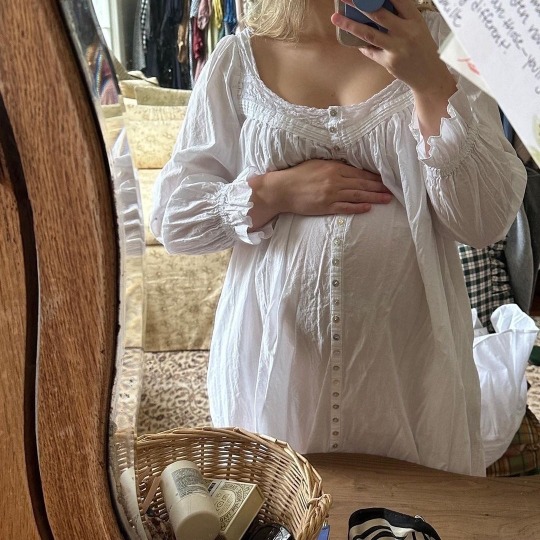
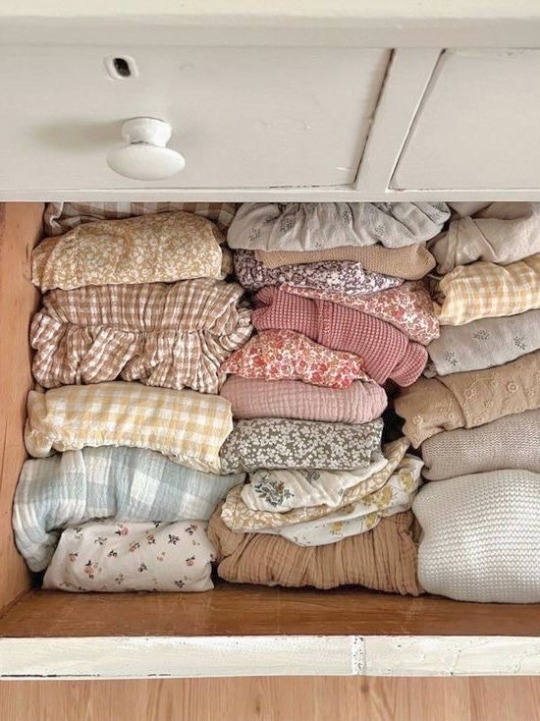
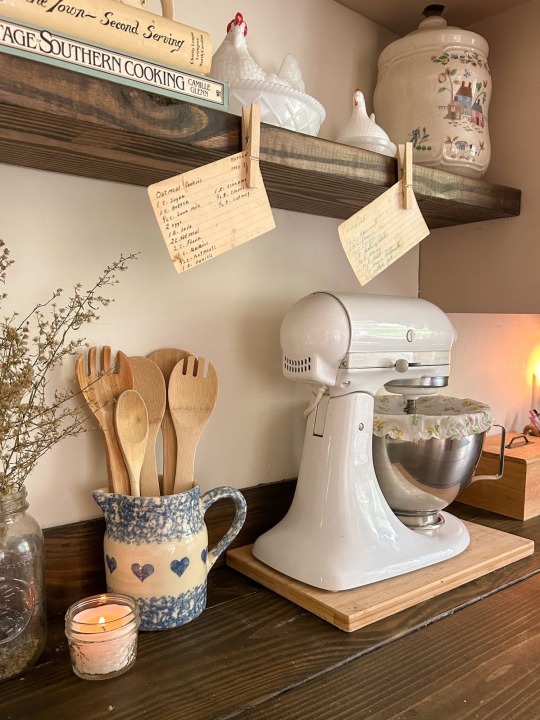
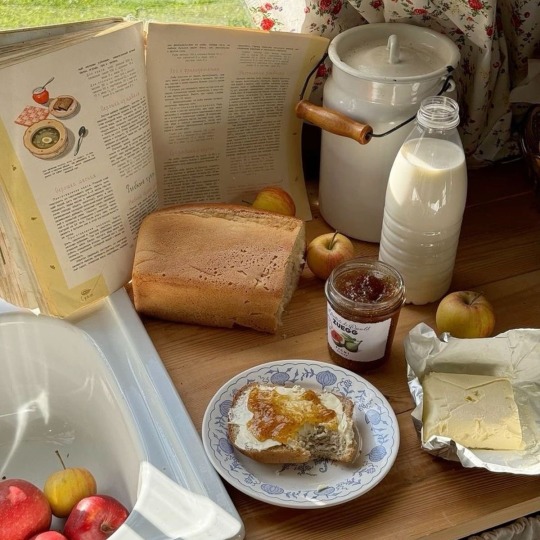
#homemaker#homemaking#trad#trad wife#trad wives#tradwife#traditional relationships#tradfem#traditional marriage#traditional lifestyle#traditional living#traditional gender roles#traditional wife#traditionalism#traditional#femininity#traditional femininity#trad women#tradblr#tradlife#traditional values#stay at home mom#cottage aesthetic#cottage kitchen#cottage living
185 notes
·
View notes
Text
Yall, please pray for me. I’m having a lot of anxiety about potentially having preeclampsia with my son, and anytime I have the slightest potential symptom I start spiraling. Please pray that I have peace to accept whatever outcome the Lord wills
#prayer request#tradfem#traditional gender roles#traditionalism#orthodox christian#feminine#homemaking#homemaker#part time worker part time homemaker#antiochian orthodox#homemaking tips
171 notes
·
View notes
Text


Tis Nutcracker season ✨🩰
#Christmas#cottagecore#vintage aesthetic#vintage style#romantic academia#ballet#the nutcracker#cottage core#fairycore#homemaking#victorian era#victorian aesthetic#ballerina#vintage#balletcore#princesscore#cottage aesthetic#nutcracker#flowercore#light academia#light academia aesthetic#edwardian#vintage ootd#vintage outfit#true vintage#vintage living#fairmaidnelly
2K notes
·
View notes
Text
*takes your face gently in my hands and looks sincerely into your eyes* listen. your home does not need to look like a showroom. homes are meant to be lived in, and that means a certain amount of mess. it's okay if there is clutter on your desk or if you don't remember the last time you cleaned your oven. mess is morally neutral. but at the same time, you deserve to live in an environment that is safe and comfortable, and that means someone has to clean sometimes. things like mold, spoiled food, and dirty litter boxes are genuine health hazards and need to be dealt with before they make someone sick. think of cleaning less as "my home needs to be completely spotless" and more as "I am an animal and I need a habitat that is free of hazardous material." it's okay. *kisses you on the forehead and tucks you into a blanket*
(and of course it is always acceptable and even good for you to ask someone else to help you with cleaning if it's physically or mentally difficult for you. even if you're paying them to do it.)
#this post is for my inner child exclusively#cleaning#housework#homemaking#adulting#adulting tips#self care#adhd#actually adhd#neurodiversity#neurodivergent#neurodiverse stuff#mine#disabled#actually disabled#cottagecore#farmcore
11K notes
·
View notes
Text
If you have celiac or otherwise can't eat wheat, btw, and you like bread, I highly recommend investing in a breadmaker. Even the best store-bought gluten-free bread does not hold a candle to the stuff that comes out of our breadmaker, and it's cheaper per slice even when we buy bread mix in single-loaf bags.
This is our breadmaker. Evie got it on sale, but it is an investment. I'm not going to pretend it isn't a chunk of change up front. There are cheaper ones, but the reason I like this one and think it's worth the money:
It has two smaller paddles, where our older bread maker that my mom got us and got destroyed by getting construction dust in it had one big paddle in the middle. This leaves a big hole in the middle of the finished loaf, which makes the bread much less useful for, like, sandwiches.
Zojirushi is not as well-known a brand in the US, but it's a Brand Name in Japan for good reason. Evie's had our Zojirushi rice cooker for over a decade & we had to replace the inner bowl once bc someone used metal utensils in it and scratched the non-stick coating. We expect to use this machine for at least a decade.
You can program your own cycles, which we found really useful. Evie built a custom cycle that removed the punch-down sections (gluten-free bread tends not to rise as much) and that made our perfect loaf.
A lot of bread machines produce very tall, square loaves, which are awkward to slice, store, and make sandwiches with. This produces loaves that make good sandwiches and toast, and the French toast slices don't crowd the pan.
The top heating element on this gives a really amazingly browned top crust that we definitely didn't get on our old machine.

It's so pretty.
So how is it cheaper in the long run if the machine costs $300+? A little like this:
We use Pamela's Bread Mix bc it's really consistent and easy - you need the bread mix, water, yeast, 3 egg whites, and oil. (We use avocado oil and find it best and most consistent, but regular vegetable oil works!) We buy Pamela's in bulk, and without any subscription discounts or whatever, the $48 pack of 3 bags makes about 11.5 loaves. With the cost of yeast and eggs and stuff, it ends up costing about $4.50 a loaf. (If you buy your yeast in larger bags & store it in an airtight container, you can create less waste and it's also cheaper.)
By comparison, a loaf of Franz GF Bread costs $7-8, and Canyon Bakehouse usually runs about the same.
However, that's not an apples to apples comparison because the Franz loaf is an 18 oz. loaf, whereas our breadmaker makes a 2 lb. loaf. Assuming even the lower-end cost for getting a Franz loaf at the store, an equivalent amount of bread would cost $12.42, and it's not nearly as good.
(Yes, gluten-free bread is fucking expensive. That's part of why I'm writing this post in the first place.)
Anyway, assuming you eat 2 lbs. of bread a week in your house - a breadmaker loaf, basically, to make the math simple - you'll end up spending $7.92 less on bread every week. That means that even at the most expensive cost for the Zojirushi, if you buy it at its highest price (don't do that! wait for a sale!) it'll take 50 weeks - about a year - before the breadmaker pays for itself. If you manage to get it on a 25% off sale (which we did), it pays for itself in about 9 months.
Nine months, I must stress, in which you are eating much more delicious bread.
We tend to go through a couple of loaves a week because toast, sandwiches, and melts are great food for people with low spoons.
Evie and I perfected the Pamela's mix recipe for this particular machine - I'll get it typed up when I'm downstairs next, along with the quasi-babka recipe. (Really, it's like a marble cake and babka and bread had a baby, and it's a family favorite.)
Bread good. The end.
#my peasant roots let me show you them#homemaking#queer homemaking#food#food cw#affiliate links#i may make a few pennies from these links#and use them to buy books
1K notes
·
View notes
Text
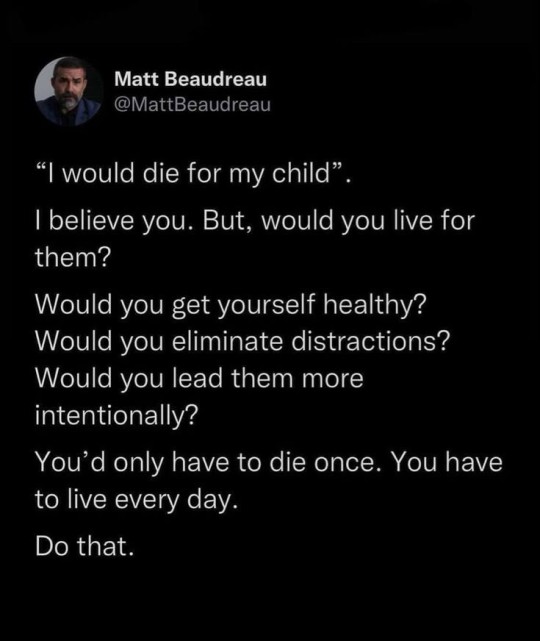
#motherhood#stay at home mom#momlife#crunchy mom#hippie mom#sahm#sahmlife#sahmomlife#traditional family#family#traditional home#homemaker#homemaking#housewife#traditional gender roles#traditional femininity#tradwife#tradfem#traditional wife#traditionalism#traditional marriage#trad wife#tradblr#tradwoman#trad wives#trad women#hyper feminine#femininity#feminine#traditional housewife
2K notes
·
View notes
Text
Room Rescue: Basics of Roomkeeping*
*As opposed to housekeeping.
I was talking with someone I know about the basic things that make a room feel better for the least amount of know how and effort. I told them I'd do a write up of my advice so they could refer back to it. I hope it's helpful to some others as well.
Who This Is/Isn't For
This isn't for the folks who already have pretty organized and clean spaces - I am not one of you, I can only admire from afar. This isn't for the folks who don't yet have clear walkways to their bed, bathroom, food, and exit. Been there, you have my love.
This is with a bedroom in mind. This works best if you've got 10-20 minutes a day you can work on it. This works best for people who have already done some decluttering done though maybe not quite as much as they need. This works better in smaller spaces than larger spaces. This is for those people who keep piling up stuff and don't know what to do with it.
Zoning
Your room needs zones. I like try to have the zones the CPG Grey talked about in his Spaceship You video:
Couch/Lounge
Bed/Sleep
Work/Creative
Movement/Exercise
In very smell rooms, some of these around going to overlap and that's fine, just so long as you know where each of them is. Movement for many people is going to be an outside zone and that's fine.
Once you've established these zones, only stuff that belongs with that zone's focus can stay in that zone.
You will pretty quickly come across lots of stuff that doesn't fit neatly into your zones yet. Either you don't have the storage for it yet or you're not quite sure if you're going to keep it long term. That's fine. This is where the support zones come in handy.
Trash
Laundry
Staging/Take Out
DOOM (Didn't Organize Only Moved)
It's my personal opinion that trash and laundry should be in containers with lids/bags that zip closed. If that genuinely doesn't work for you don't listen to me. The pro of this is that when it's contained like that it feels like less of a task/there's less visual clutter and it's less stressful to see them.
Staging/Take Out zone is for things you want to take out of the room when you get up. They should wither be close to the door or close to where you put that stuff down anyways.
DOOM (Didn't Organize Only Moved) zone is for all the boxes, bags, random pile of crap that do not currently have a place. The ideal place for this zone is the least visible spot from the door. I recommend this because how you enter the room determines a lot of how you feel about it. Stick anything that doesn't yet have a place here. Use boxes, pile high.
From there, you can dedicate 15-20 minutes a day to tidying first, then using the leftover time to improve the space.
Tidying
I like the Five Things Tidying method from KC Davis. Everything in your room falls into one of five categories:
Trash
Dishes
Laundry
Things that Have a Place
Things that Don't Have a Place
Start at the top and work your way down. Don't get through the whole list in 15-20 minutes? Just get as far as you can and come back tomorrow. Things that don't have a place can go in your DOOM Pile. If all you can manage if 5 minutes, that's great. Do what you can.
If you miss a day, no big. Shoot for more days out of a week than not and your space will steadily get cleaner.
Improving
If you have time leftover after tidying each day, I recommend doing some of the following:
Decluttering your DOOM pile/establishing object homes
Clearing horizontal surfaces
Decorating/hang up mementos
Physical cleaning
You will always have some sort of DOOM or Miscellaneous Pile/Box. I don't know of a single sane person in my life who doesn't. The goal is to get it to something manageable for you. Maybe it's a section of your closet, maybe it's a box under your bed - whatever ultimately strikes that balance between the stuff you want to fit there and the space you want for everything else you do in your room. Which is to say periodically going through DOOM piles is not a sign of failure, it's a normal chore. For decluttering, I highly recommend Dana K. Whites No-Mess Decluttering Method.
Clearing horizontal surfaces is s constant battle in my experience. They love to collect things. The only things that should be on surfaces are things that you have decided go there. Have a lot of items? Group them into bags and boxes so they can be moves more easily. Leave the tops furniture for decor and lighting and, in the case of desks and bedside tables, a well curated selection of favorites. These selections will need updated and rotated through when you're in different seasons of life. It's not shameful, it's a normal chore.
Decorating is a vital part of living in a space. I will die on that hill. You can add as much or as little as you like but some personalization is so key for mental health. Take a little time here and there to put up pictures of loved ones, cards or other ephemera that make you happy. Put up lamps that help you see better and works of art that inspire you. It's also a chore.
Physical cleaning. The main cleaning that needs done in a bedroom is dusting and vacuuming. Honestly if you're starting from scratch, once a month is often plenty to start with. Clean up spills as they happen. Take out trash when it's full. Do your laundry as needed. Refill tissues and such when you run out. Most of cleaning is responding to events and your own needs.
Conclusion
I hope this gives someone some ideas on how to improve their room a little so it's a more pleasant space to be in. This won't result in like a pinterest level room but it strkes that balance between neat and easy to care for in my experience.
Take what's useful and leave the rest!
221 notes
·
View notes
Text


Wanting a man to provide for you doesn’t mean you’re incapable. Of course you’re capable. But it’s nice to have someone help you and take of you. That doesn’t mean you can’t do those things yourself. That just means someone loves you enough to make your life that bit easier <3

FUCK OFF IF YOUR BLOG IS 18+ I’M SICK OF IT
#tradblr#trad#tradwife#traditional wife#traditional#traditionalism#traditionally feminine#traditional femininity#feminine#femininity#housewife#traditional marriage#traditional masculinity#traditional relationships#old love#traditional gender roles#homemaker#homemaking#traditional woman#traditional living#traditional lifestyle#traditional life#traditional family
1K notes
·
View notes